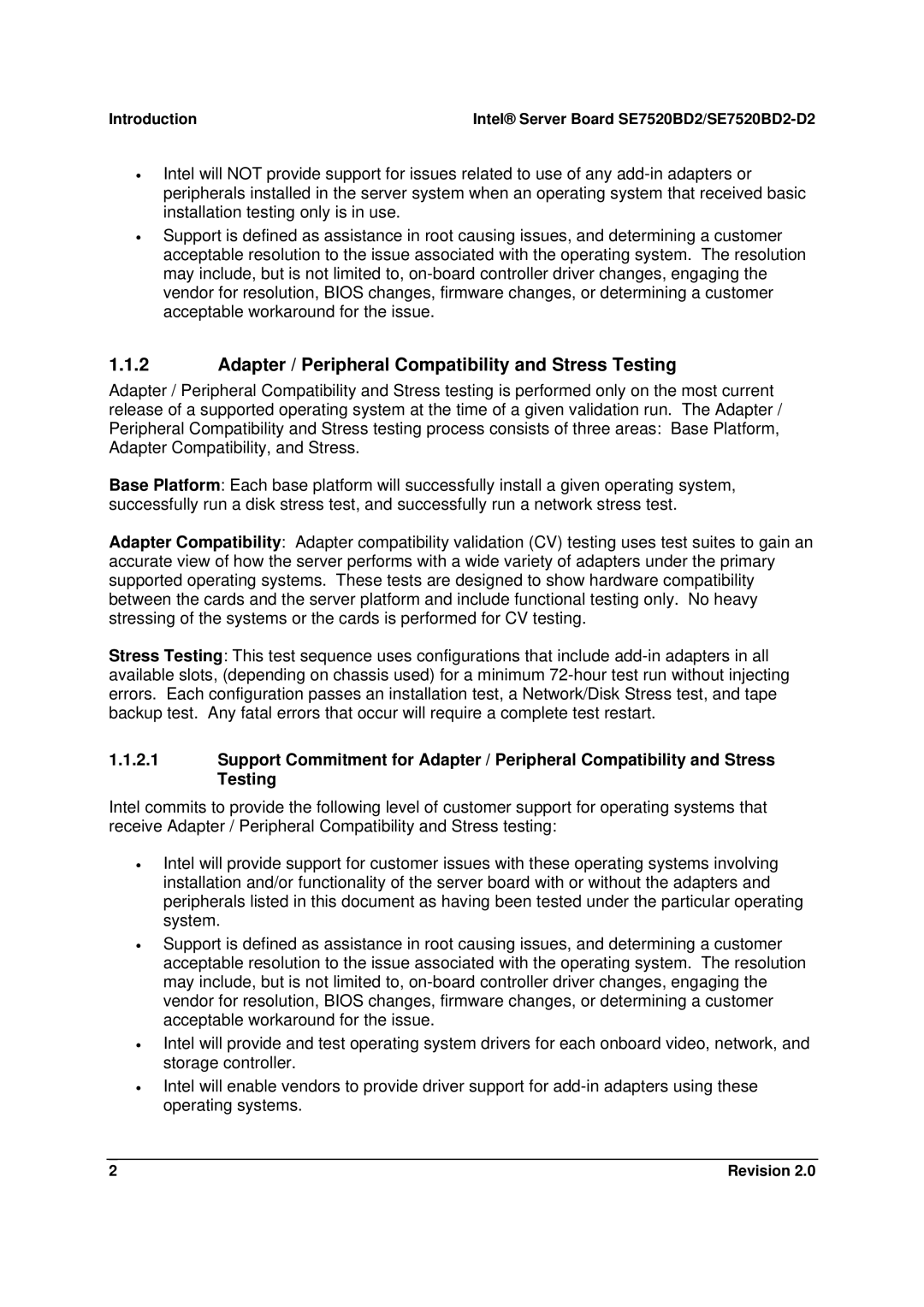SE7520BD2, SE7520BD2-D2 specifications
The Intel SE7520BD2 and SE7520BD2-D2 are server motherboards designed for high-performance computing environments. Built on the Intel architecture, these motherboards cater to the demanding needs of enterprise-level applications, virtualization, and data-intensive processes.One of the standout features of the SE7520BD2 series is its support for dual Intel Xeon processors, which allows users to harness multiple cores for parallel processing. This capability significantly enhances system performance, making it ideal for tasks such as database management, web hosting, and large-scale computations. The motherboard is equipped with a Socket 604, enabling compatibility with a range of Intel Xeon processors, thus offering flexibility for system upgrades.
Memory support is another critical aspect of the SE7520BD2. The motherboard features eight DIMM slots, supporting DDR2 RAM with speeds of up to 400 MHz. This design allows for substantial memory capacity, with configurations supporting up to 32 GB of memory. The advanced memory architecture helps ensure robustness, stability, and low latency, which are crucial for memory-intensive applications.
The motherboard also includes several integrated technologies to enhance performance and reliability. Among these is Intel’s PCI Express technology, which provides high-speed connectivity for peripheral devices, including graphics cards and storage solutions. This feature is essential for building high-performance systems that require fast data transfer rates.
In terms of storage, the SE7520BD2 supports SATA for connecting hard drives and solid-state drives. It features up to six SATA ports, enabling extensive storage options that can accommodate the needs of large databases and extensive file storage. The availability of RAID support further enhances data integrity and redundancy, making it suitable for critical applications.
Security features on the SE7520BD2 series include support for various enterprise-level management tools, such as Intel Active Management Technology, which facilitates remote management and monitoring of servers. This is particularly valuable for IT administrators in maintaining system health and security.
In conclusion, the Intel SE7520BD2 and SE7520BD2-D2 motherboards provide a robust platform for high-performance applications. With its support for dual Xeon processors, extensive memory capacity, and advanced connectivity options, these motherboards can meet the rigorous demands of modern enterprises while delivering reliability and efficiency. Whether deployed in data centers, enterprise server environments, or for specific computational tasks, the SE7520BD2 series stands out as a reliable choice for organizations looking to optimize their computing power.
